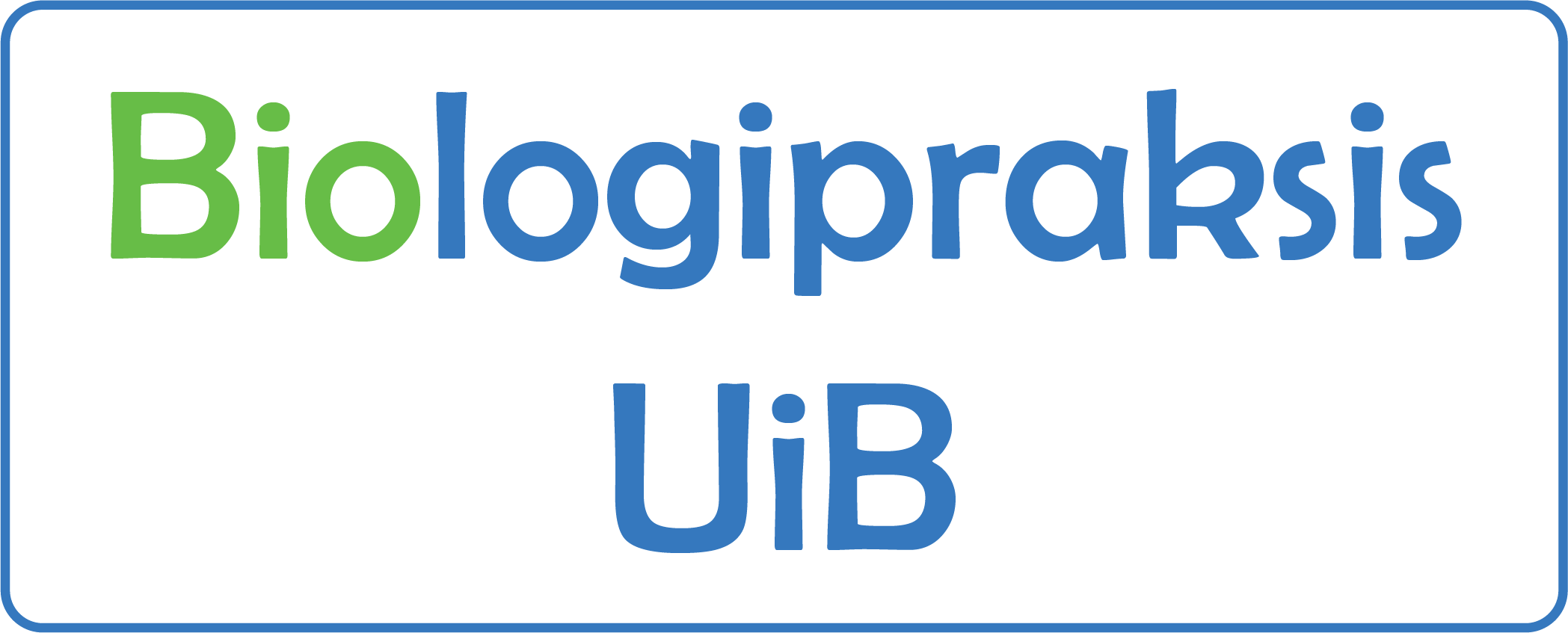Student Work Placement Practice Course in Biology

Background
This elective 10 ECTS course allows BSc students to apply their content knowledge in real life practical work situations. Established in 2014-2015, this course was developed through the Norwegian research council-funded project PRIME and SFU bioCEED, and has since been an elective course at the Department of Biological Sciences at the University of Bergen. The course framework has been shared and is now used in discipline educations in Norway.
Within the framework of a 10 ECTS course, the students gain real life work experiences in the public or private sector, while reflecting on their learning through course assignments and campus seminars.
Goal & Purpose
Workplace Practice in Biology BIO298 is a 10 ECTS elective course giving students practical experience as a biologist in a workplace. The aim of the course is for students to get real work life experience, and see the connections between the theoretical discipline based knowledge gained at the university, and how this competence contributes to society and public and private sectors. The course is designed to be a win-win situation for both workplace and student, giving the student real life experiences while contributing to real tasks in the workplace.
The course promotes theoretical and practical skills and make students aware of their competences and also of their transferable skills. Through the course, students are made aware of career opportunities and the roles that biologists have in society, and students are engaging in relevant work training.
The course intended learning outcomes include:
- gaining general work experience and concrete sector experience,
- gaining insight in relevant work tasks in organizations, public and private sectors relevant for their discipline-based education,
- learning to combine theory with experience-based learning, and reflect on the basis on theory and practice,
- work with observation, cooperation, supervision and practical methods,
- be able to describe how a company or organization works,
- use biological knowledge in work specific practical tasks,
- summarize their work in a report.
The course has a 250-hour student workload, of which at least 150 must be completed at the workplace. In addition, the student writes a report that consists of four blogposts and a reflective essay, they contribute to two on campus seminars, and give a presentation of their work practice to their peers.
The reporting activities aim to encourage students to reflect on their learning and perceptions of their experiences, beyond just describing performed procedures. The student blogs train the students in scientific dissemination to a wider audience. In their blogs, students use images and discuss their roles as biologists and their reflections on working practices, with fellow students invited to comment. A reflective essay, written post-placement, delves deeper into these experiences but is shared with course instructors only, allowing for more openness and critique regarding the course, performance, placement, or tasks. This assignment also covers their learning outcomes, the course's impact on their understanding of biology's role in society, and its interaction with the broader community. The semester concludes with an open oral presentation at a student seminar, summarizing their placement host, tasks, and key learnings, followed by questions and answers.
Community
The course is open to students in their last year of their BSc programme in biology, and they must have completed a minimum of 60 ECTS in biology prior to entry.
The students are required to attend on-campus seminars.
The students are required to take on relevant tasks at a work placement under supervision of a work placement host for a minimum of 150 hours.
Tools
The course responsible and the study administration contact relevant work placements who provide a list of tasks. Students apply to this course through form with a letter of motivation, upon which the course responsible will assign the student to a work placement.
The course includes the following activities and individual tasks, totaling to 250 hours workload
Curriculum 1:
- Relevant work at the work placement (minimum of 150 hours)
Curriculum 2:
- Write a CV
- A seminar series
- An individual presentation
- Four blog posts
- A reflective essay
Other considerations
BIO298 Workplace Practice in Biology is a 10 ECTS course at the Department of Biological Sciences at the University of Bergen. The course provides a minimum of 250 hours of work, of which 150 must be at the workplace. Students are given ECTS credits for their work, and cannot be paid additionally.
Work placement supervisors can benefit from increased knowledge about the course and about mentoring. Supervisors are supported through contact with the course responsible/course administrative, and this contact is important for both work placement, university corse and the student.
Supervisors have access to the additional developed tool available at praksisveileder.no which is developed in cooperation with this course and on the basis on focus group interview with hosts at several campuses.
The BIO298 community has conducted bi-annual meetings for work placement hosts to discuss student learning, work placement organization and provide an arena to share experiences among hosts.
The students and supervisor are encouraged to conduct an appraisal interview halfway through the work placement. The purpose of the interview is to facilitate the flow of information and establish a solid foundation, enabling both parties to discuss progress and determine if any adjustments are necessary.
Field and lab activities at a workplace may necessitate insurance, health and safety measures, and risk assessments.
References
Link to course page BIO298: https://www4.uib.no/emner/BIO298
How to apply: https://www.uib.no/bio/84959/yrkespraksis-i-biologi
Link to student blogpage: https://biopraksis.w.uib.no/
Link to PRIME: https://bioceed.w.uib.no/prime/
Link to DEVELOP: https://dvlp.w.uib.no/
Link to resource for work placement mentors: https://praksisveileder.no/
Additional publications related to this course
Velle, G., Hole, T. N., Førland, O., Simonelli, A.-L., and Vandvik, V. (2017). Developing work placements in a discipline-oriented education Nordic Journal of STEM Education, Vol. 1, No. 1 (2017), pp 287-306. https://doi.org/10.5324/njsteme.v1i1.2344
Contributors
- Gaute Velle
- Kristin Holtermann
- Kjerstin Nilsen Nøkling
